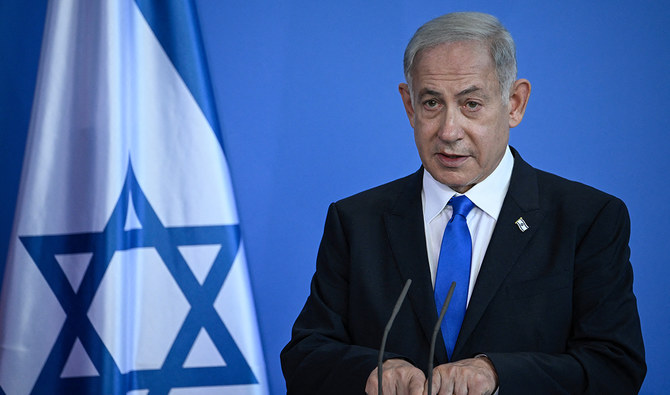JEDDAH: Israeli Prime Minister Benjamin Netanyahu faced a barrage of criticism from all sides on Friday amid growing unrest over proposed reforms to the Supreme Court that opponents say is a judicial power grab.
Hundreds of elite Israeli military reserve officers will refuse to report for duty on Sunday in protest at the reforms, the US called on the Israeli government to seek a compromise on the plans, and a former Israeli prime minister urged world leaders to shun Netanyahu.
The controversial legal overhaul has sparked weeks of mass protests by hundreds of thousands of people across Israel amid a deteriorating security situation in the occupied West Bank and rising tensions with Palestinians.
The reforms would give Netanyahu’s parliamentary coalition control over the appointment of judges to the Supreme Court and power to overturn its rulings. Critics say the overhaul will upend the country’s system of checks and balances and give the prime minister too much power. They also say Netanyahu, who is on trial on corruption charges, could escape justice once the court system is revamped.
In an unprecedented protest by the security services, about 750 elite reserve officers from the air force, special forces and Mossad signed two open letters saying they would not report for duty on Sunday.
In one letter, 100 air force officers including two former chiefs said Netanyahu’s government was subverting Israel’s security and democracy. “We fear that following military orders would be a violation of our oath, our conscience and our mission,” they said.
In the other letter, about 650 officers from the reserves’ special forces and cyber units said: “We will not serve a dictatorship. The contract was broken. We are ready to give our life and soul, and the government should give responsibility and sanity. You want a dictatorship — you will pay the full price.”
Israel’s military chief of staff Herzi Halevi met protesting officers and warned Netanyahu about rising discontent in the ranks.
Ehud Olmert, who was prime minister from 2006-2009, said world leaders should refuse to meet Netanyahu. He appealed specifically to British Prime Minister Rishi Sunak, who is expected to host Netanyahu in the next few weeks.
“I urge the leaders of friendly countries … to refrain from meeting the Israeli prime minister,” Olmert said. “I think that the present government of Israel is simply anti-Israeli.”
US Secretary of State Antony Blinken said the US would not take sides in the dispute, but called for compromise. “Consensus is the best way forward,” he said.













